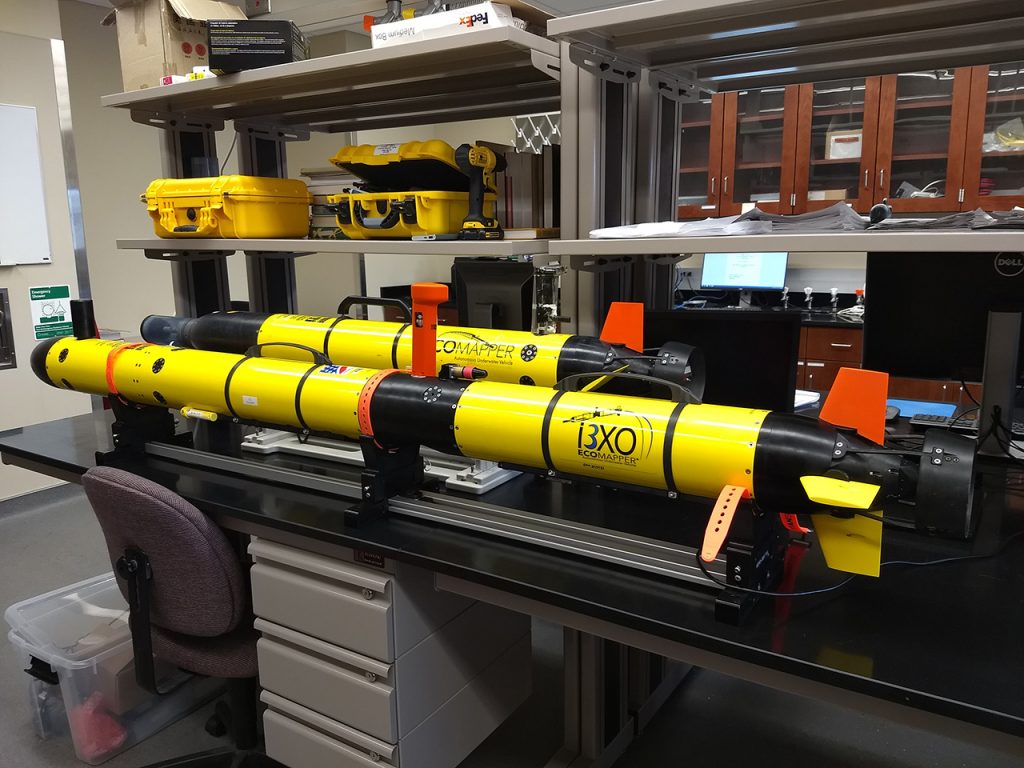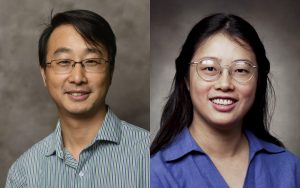Two University of Alabama professors have been selected by the National Science Foundation to lead a $1.5 million effort from its CISE Community Research Infrastructure program.
Dr. Aijun Song, assistant professor in UA’s Department of Electrical and Computer Engineering, and Dr. Xiaoyan Hong, associate professor in the Department of Computer Science, have been awarded $880,000 by the NSF for their project, “CCRI: mu-Net: Infrastructure to Advance Mobile Underwater Wireless Networking Research.” Working with their colleagues from several other universities, they plan to develop a community-shared infrastructure that will enable underwater research robots to exchange information more easily.
The project, called mu-Net, is a low-cost and flexible infrastructure consisting of both software and hardware that will support both laboratory tests and field experiments. Shared infrastructures are not currently available in research communities for coordinated underwater robotic research.
“mu-Net is the first open-source underwater infrastructure of its kind,” said Song, the lead principal investigator of the NSF CCCRI project. “Our goal is to make the infrastructure accessible for scientists and academic users.”
The mu-Net infrastructure is made up of open-source software that is reconfigurable for simulations and emulations, user services to support shared usage, miniature aquatic robots for lab tests, larger commercially available autonomous surface and underwater vehicles for lake tests. The project will open doors for several areas of research, such as cooperative and coordinated marine robotics, underwater mobile communication networks and joint networking and navigation of marine robots. It could also lead to an underwater “Internet of Things,” which is a system of internet-connected devices that are able to collect and transfer data over a wireless network without human intervention.
“The mu-Net project will bring significant resources to The University of Alabama for water-related research, especially those that involve data collected from water bodies,” Hong said.

Researchers believe mu-Net will increase the ability for greater aquatic exploration for scientific and commercial purposes in areas of marine biology, food sources and economic development. It will expand user communities by creating a variety of engagement activities such as annual workshops, summer training schools, and girls robotics camps. Additionally, mu-Net is expected to be adopted for various educational and research purposes, such as ocean literacy, workforce training, academic research and industrial technology development.
The project will be funded by NSF for three years. In addition to UA, participating universities include Georgia Tech, City University of New York and Michigan Technological University.

